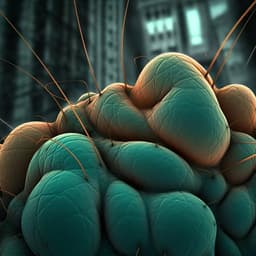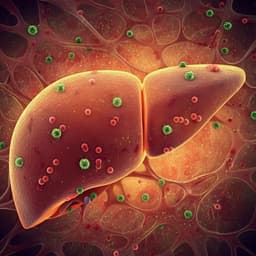
Environmental Studies and Forestry
Mesophilic and thermophilic viruses are associated with nutrient cycling during hyperthermophilic composting
H. Liao, C. Liu, et al.
This groundbreaking research by Hanpeng Liao, Chen Liu, Chaofan Ai, Tian Gao, Qiu-E Yang, Zhen Yu, Shaoming Gao, Shungui Zhou, and Ville-Petri Friman reveals how DNA viruses play a crucial role in nutrient cycling during hyperthermophilic composting. Through advanced metagenomics and metatranscriptomics, the study uncovers the intricate relationship between viruses and their bacterial hosts, highlighting the importance of viral abundance in ecosystem functioning.
Playback language: English
Related Publications
Explore these studies to deepen your understanding of the subject.







